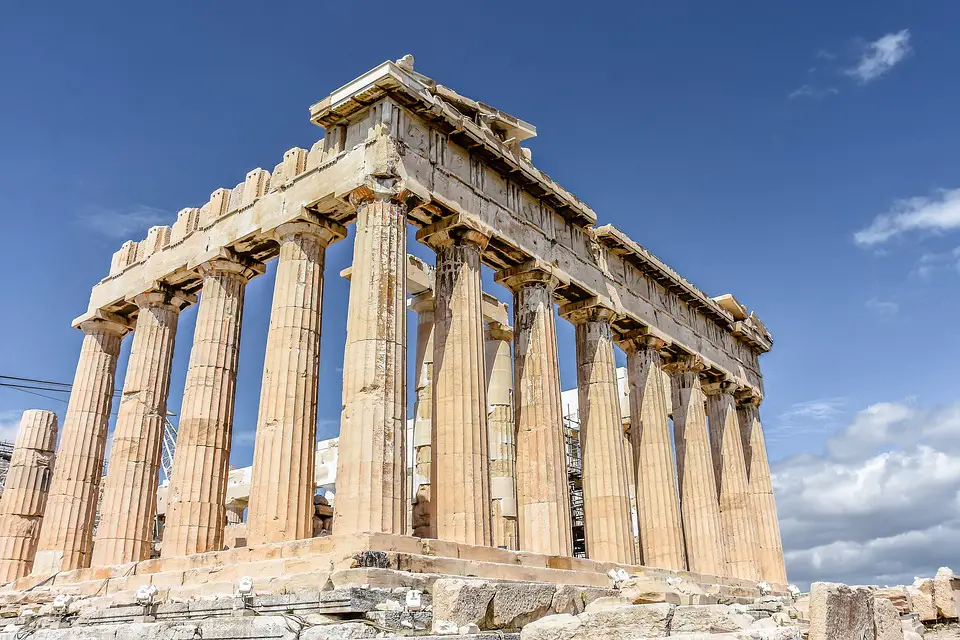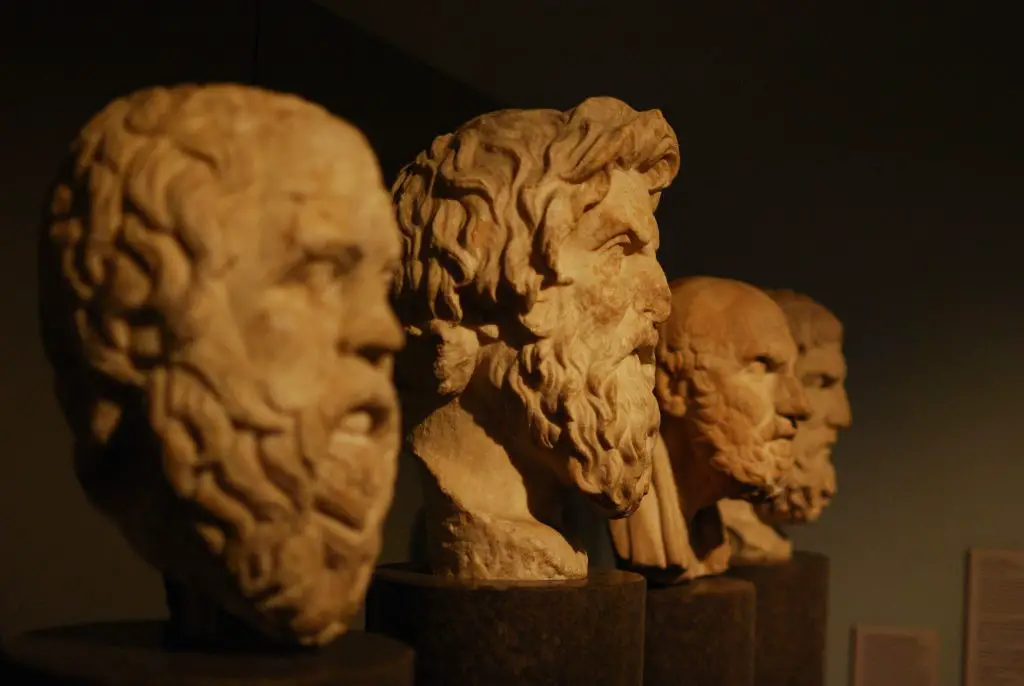There were many important city-states in Ancient Greece, but Athens was perhaps the most important and the most powerful.
Athens was a great center for art, literature, philosophy, and education. It was also the first Greek city-state to adopt a fully democratic system of government.
Let’s learn more about one of the world’s oldest and most fascinating cities!

Athens: The Basics
Athens began as a small Mycenean community and grew to be one of the most respected and influential cities in the ancient world.
The city-state was named after the Greek goddess Athena, the goddess of wisdom and war. The Athenians shrine to Athena, the Parthenon, is located on a hill in the center of the city.
Athena was considered the patron goddess of Athens. The Ancient Greeks believed she kept watch over the city and its people.
The soil in Athens was not very good for growing crops. Trade, and especially sea trade, became very important to the Athenians.
Important Buildings
The Parthenon, mentioned above, is the most famous building in Ancient Greek history. But it wasn’t the only Athenian architectural accomplishment.
Surrounding the Parthenon was the Acropolis. The Acropolis was originally built as a fortress and citadel to protect the Athenians when the city was invaded.
It continued to be used as a fortress, but many temples and buildings were also built at the Acropolis. It was also home to popular entertainment, like theatres where festivals and plays were celebrated.
For example, the largest theatre was the Theatre of Dionysus, patron god of the theatre and the god of wine. The Athenians would hold competitions to see who could write the best play.
The theatre was so well-designed that it could hold up to 25,000 people, and all of them could clearly see and hear the play.

Education in Athens
Education was very important to the Athenians. At the time, boys went to school while girls stayed home and learned to cook, clean, and sew.
At school, boys studied writing, public speaking, drama, and reading. They memorized poetry and learned to play a musical instrument—usually the lyre, which is like a small harp.
The sons of wealthy nobles attended high school, where they spent four more years studying math, science, the arts, and politics and government.
The Golden Age of Pericles
Under the leadership of Pericles (from 491 to 429 BC), the city of Athens reached its peak. It was a time of great writers, thinkers, and artists.
Some of these brilliant people included:
- Herodotus- Known as “the father of history.”
- Socrates– Known as “the father of philosophy,” he taught in the Athenian marketplace.
- Hippocrates- Known as “the father of medicine.”
- Phidias- Sculptor who created famous works for the Parthenon, the Acropolis, and the Temple of Zeus at Olympia.
- Aeschylus, Euripedes, Aristophanes, and Sophocles- Writers of famous plays.
There were many more brilliant people to come from Athens, including the philosophers Plato and Aristotle. Plato was a student of Socrates, and Aristotle was a student of Plato.
In 385 B.C., Plato founded the Academy, the first institution of higher learning in the western world, just outside the walls of Athens.
Later, Aristotle founded his Lyceum in the center of Athens. He built a substantial library and taught a brilliant group of research students. At the Lyceum, many of the lectures and teachings were open to the public and given free of charge.
Aristotle was also the tutor of Alexander the Great, one of the best military leaders in world history.

Democracy in Athens
Most ancient Greek city-states were ruled by kings or by councils of just a few people. But for about 100 years, Athens was a direct democracy.
This system was introduced by the Athenian leader Cleisthenes and was called demokratia, or “rule by the people.”
It was divided into three separate institutions:
- The ekklesia- a governing body that wrote laws
- The boule- a council of representatives from the ten Athenian tribes
- The dikasteria- the courts in which citizens argued cases before a group of jurors selected by lottery
Athenian citizens had the right to vote and the right to a trial. Voters also had the power to banish politicians from the city-state for up to 10 years.
Only males could be full citizens, and only if both their mother and father were Athenian. Women, children, slaves, and foreigners living in Athens could not participate in government.
Other Interesting Facts About Athens
- Athens is the oldest capital in Europe.
- The first Olympic Games in history were held in Athens in 776 B.C.
- Cheese, figs, and grapes were some of the main dishes in Athens. Meat was rarely eaten.
- Athens’ reputation as a respected city of learning and culture was so great that even when the city was defeated by Sparta and later the Romans, it was never completely destroyed or burned to the ground.
More on Ancient Greece.